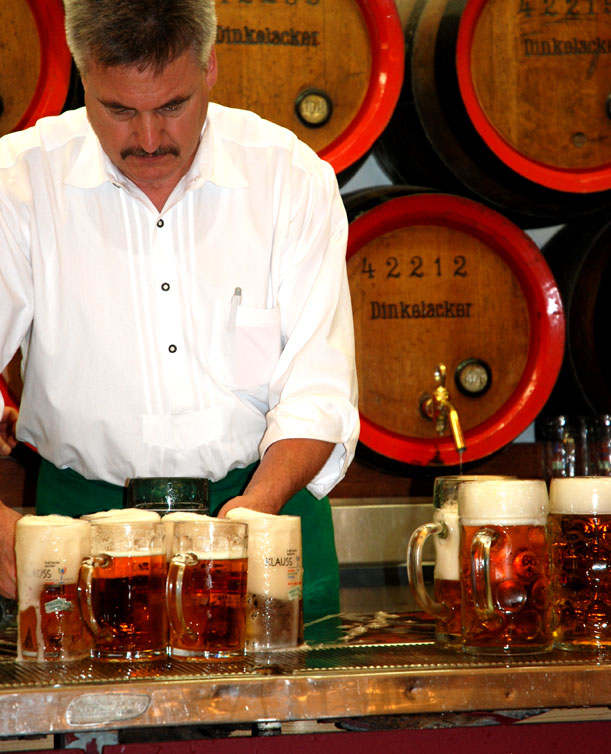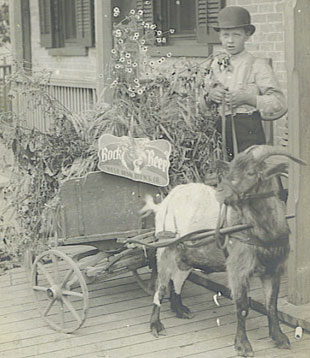MONDAY BEER LINKS, MUSING 09.15.14
What Happens When Bud Light Takes Over Your Town for a Weekend. After all the hoopla before Bud Light’s “Whatever, U.S.A.” takeover of Crested Butte, Colorado, I was disappointed in the days after the event by the lack of stories about how it went (other than the one, repeated over and over, describing how hard it was for people to get flights home). But then I came across this account from a local in Vanity Fair.,
… anyone who says you can’t get drunk on light beer clearly hasn’t witnessed 1,000 twentysomethings flown from sea level to the mountains and pumped with an endless supply of cheap lager. Illuminated by blinding set lights and stumbling along streets paved in blue, partygoers had an eerie, zombie-like glow about them.
In the aftermath I remembered a story heard long ago at New Belgium Brewing in Fort Collins. Kim Jordan and Jeff Lebesch seriously considered starting their brewery in Crested Butte — well known for its skiing, mountain biking, and wildflowers in the spring — rather than Fort Collins. PR director Bryan Simpson confirmed that it was once on the short list but was eliminated because shipping logistics were “challenging.” If you’ve ever driven there from just about any direction you are entitled to add an expletive before “challenging.”
But think about it. Had New Belgium located instead in Crested Butte maybe it would not have become “Whatever, U.S.A.” But of course New Belgium might not have become New Belgium.
[Via Vanity Fair]
Hegra maltøl at Granås Gård. One pleasant result last week when I solicited input on what constitutes an “indigenous beer” (and input is still welcome) was Boak & Bailey pointed me to Lars Marius Garshol’s series on farmhouse ales and I discovered that my feed reader hadn’t been collecting the latest posts from Larsblog for quite a while. I’ve had some catching up to do. This entry stands nicely on its own, but you might want to set aside some time for several of them.
[Via Larsblog]
A trip to Jester King Brewing
[Via Its Okay to be Smart]
Why pubs are a bit like bananas. Just go read it.
[Via beersoakedboy, H/T Boak & Bailey]
Bohemian Lagers of the 1880’s and 1890’s and The Ease of Misunderstanding Czech Beer. A) The numbers from Ron Pattinson, and B) and first post in a series from Jeff Alworth that, if he succeeds, will result in people throwing their hands in the air, shouting “Why am I satisfied only reading about this?” and booking a trip to the Czech Republic.
[Via Shut up About Barclay Perkins and Beervana]
Here’s How A Six-Pack Of Craft Beer Ends Up Costing $12. This is being shared all over the Internet and on the whole nicely done, giving consumers insight into why beer costs what it does. Thus I don’t want to seem like a picky curmudgeon when I point out an error of fact. However, the story suggests that large breweries use a pound of hops in each barrel they brew and mentions that craft brewers may add up to 4 pounds. Well, the Brewers Association has surveyed members and they average 1.3 pounds, and that’s one key number. More important, brewers worldwide add between 2 and 3 ounces per barrel. If they used a pound we’d be headed for a hop shortage, as Peter Venkman once said, “of biblical proportions.” (“What he means is Old Testament, Mr. Mayor, real wrath-of-God type stuff!”)
[Via Huffington Post]
Garage science: High school teacher opens brewery. Of course this would happen in a garage in Burlington, Vermont.
[Via Burlington Free Press]

